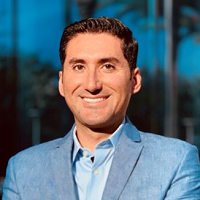Bringing Cell and Gene Therapies to Market
April 12, 2023 Javier Cardenas, PhD
Innovators in the Cell and Gene Therapy industry face a myriad of challenges, both in bringing treatments to market, as well as administering treatment to patients.
Infrastructure can be a significant hurdle in bringing new cell and gene therapies (CGT) to market. Today, developers range from small, venture-funded start-ups to some of the world’s most known players in life sciences. However, unlike traditional pharmaceuticals engineering and manufacturing, the cyclical and personalized nature of the therapy requires multi-phase manufacturing, patient-specific lots, personalized quality control using advanced rapid microbial detection, and accountability for a number of other external factors.
Established organizations, such as Gilead’s Kite (Yescarta and Tecartus CAR-T cell therapies) or Novartis (Kymriah CAR-T cell therapy and Zolgensma gene therapy), are fortunate to have existing facilities at their disposal; however, the capital expense and specialized equipment necessary to bring a novel CGT to market can present significant hurdles. Smaller start-ups face different challenges, with limited budgets and a primary focus on the science, they lack any existing infrastructure suitable for manufacture.
Early-stage developers and innovators in the space turn to third party manufacturers — Contract Development and Manufacturing Organizations (CDMOs) — who provide cGMP-ready space on a contract basis where the CDMO develops batches while upholding quality standards. An advantage to the CDMO model is that they can provide in-house expertise, reducing timelines and accelerating the path to market. However, it is important to also consider common drawbacks. These include the potential to lose control of the process, as leasing the operations to a contract organization often comes with reduced oversight of the developer’s specialized intellectual property. As regulations evolve including the latest major revision to EU Annex 1, ensuring compliance becomes critical for the success of these novel products with unique processes.
Additionally, the risk for human error in CGT development is immense, especially compared to traditional pharma/biotech. The process requires specialized staff with experience in unique technologies and methods. Selection of a partner must therefore be given careful consideration, and one that should include a Quality Agreement to help mitigate those risks.
Another option for third-party development has emerged in the last two years. On-demand cleanrooms. This new solution rivals the CDMO model by offering cGMP operations space, but with uncompromised access and control for the developers. In other words, the developer leases the manufacturing and storage space, as well as equipment, and their staff oversees the entire manufacturing process, reducing risk and protecting intellectual property.
No matter the size of the developer — start-up or established enterprise — bringing a novel CGT to market poses its unique challenges. Careful consideration and risk-benefit analysis is paramount to maintaining quality product throughout the delivery cycle.
For more information on the manufacturing options available to cell and gene therapy innovators, and factors they must consider in choosing their path, read Azzur Group's whitepaper Today's Biomanufacturing Options: Build, Broker, or Blend.
